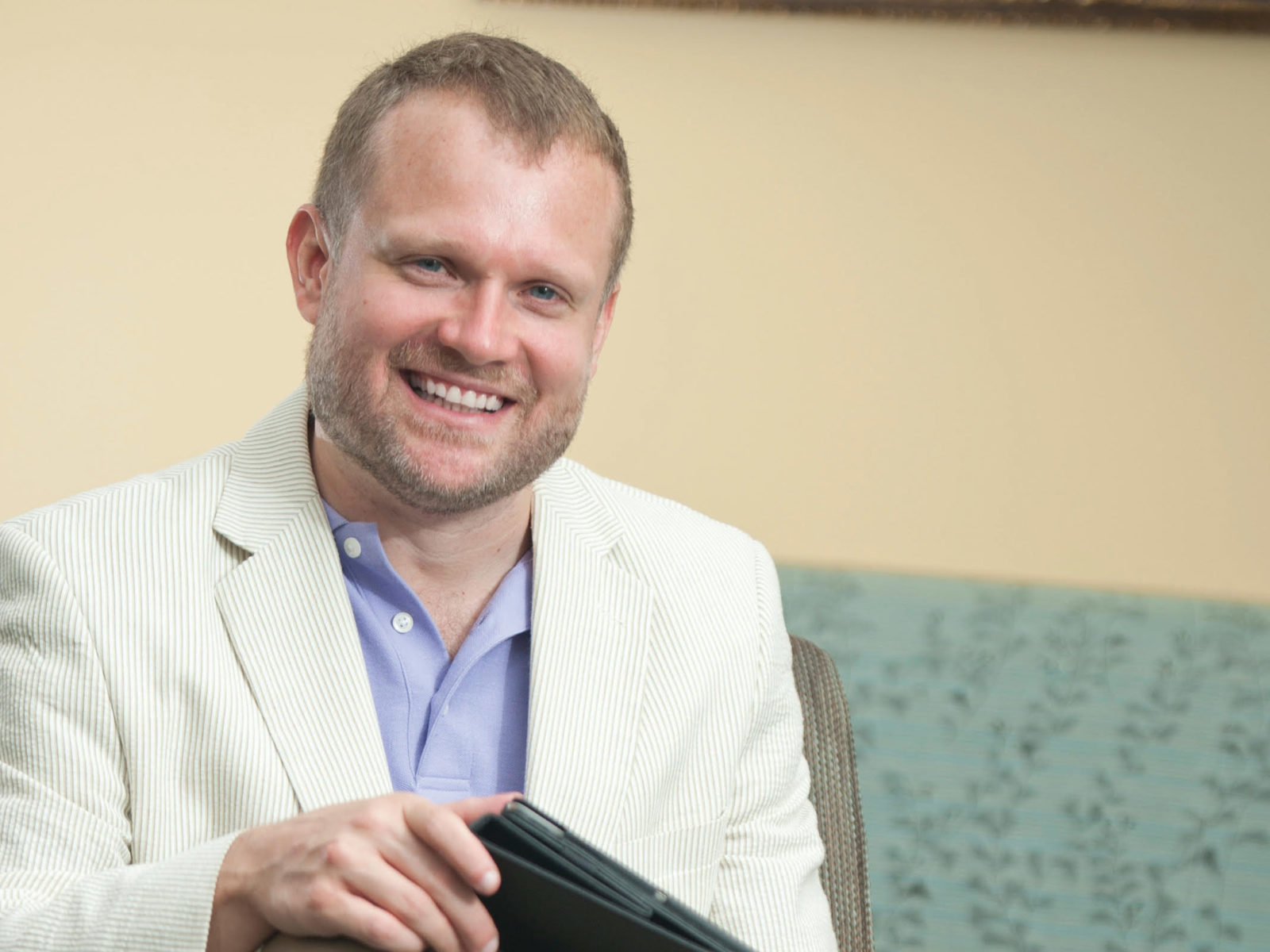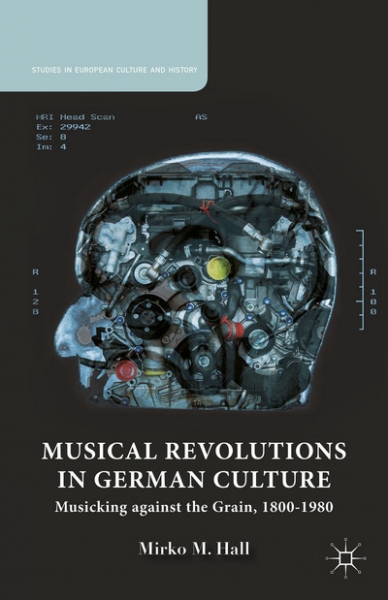Dr. Mirko Hall, A Musicking Man

Mu•sic•king (def.): any activity associated with music, such as composing, rehearsing, practicing, listening, dancing and critiquing
Whether dishing up antics to engage his classroom or playing a video clip to illustrate Marx’s work in economics, Mirko Hall, associate professor of German studies, has been opening students’ minds to the world of literature and culture since arriving at Converse in 2007. A German American from Minnesota, Hall is eclectic in more ways than one: He is a Fulbright Fellow, a former interrogator for the U.S. Army, and a Northern transplant who can sometimes be spotted in a seersucker suit or sporting purple Crocs at Converse.
A favorite across campus, Hall is perhaps better known for his dynamic (and somewhat outlandish) teaching strategies than for his research. But this award-winning intellectual historian, who once preferred black leather and the camaraderie of the disaffected youth, has found his sense of identity through music – and with it, a passion for the field of Sound Studies.
“Just as many people correlate Rock and Roll with various social revolutions, I look at similar revolutions in German music over the past 200 years.”
For more than a decade, Hall has undertaken a nuanced exploration of changes in German music, studying how music influences and is influenced by people’s perception of their place in the world. “I love music, and I love how music can challenge us to think against the grain,” says Hall. “Just as many people correlate Rock and Roll with various social revolutions, I look at similar revolutions in German music over the past 200 years. Thinking beyond the perceived boundaries of music, we can see connections between music and culture by studying times when music changed greatly – its sounds, instrumentation and styles,” he says.
 Musical Revolutions in German Culture: Musicking Against the Grain is the culmination of his work. In this newly published book, Hall explores the relationship between music and critical theory in Germany over the past two centuries.
Musical Revolutions in German Culture: Musicking Against the Grain is the culmination of his work. In this newly published book, Hall explores the relationship between music and critical theory in Germany over the past two centuries.
Hall presents readers with case studies of German philosophers who first began tracing these connections. He delves into music of the Romantic Era, The Second Viennese School (atonal compositions), music that incorporates sounds of everyday life in early urban Berlin, and in more recent times, how synthesizer technology and the use of noise provided an outlet for cultural critique. “The different sounds open up a creative space for thinking and feeling,” he says.
Mirko’s innovative and effective teaching methods transcend the Converse classroom as he reaches broader audiences through Musical Revolutions in German Culture. And, hopefully, this fascinating window into his mind sparks a deeper appreciation and understanding of the social, political and religious implications music can have on our lives.
Originally published in 580 East Main.